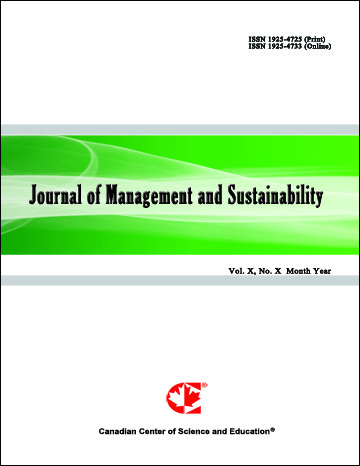Self-Employment of Latinos and White Non-Latinos in the Pacific Northwest, U.S.A.: Choice and Income
- Abelardo Rodríguez
- Stephen Devadoss
Abstract
Using data from the American Community Survey 2005, 2006, and 2007 we quantify the socio-economic factors that determine the likelihood of being self-employed (SE) of Latinos and White non-Latinos in the Pacific North West, U.S., and how these factors affect their income. Only 5.5% of Latinos are self-employed compared to 9.4% of White non-Latinos and Latinos earn 30% less than White non-Latinos. Non-linear decomposition results show that age and educational attainment explain 41% of the ethnic gap in the probability of being SE among the U.S. born. In contrast, gender, type of occupation, number of years in the United States, and good command of the English language explain 22% of the ethnic gap in the probability of being SE among immigrants. Linear decomposition of self-employment income (SEI) shows that age, marital status, and type of occupation explains 90% of the ethnic gap in SEI among the U.S. born; however, ethnic differences in SEI among immigrants are mixed. Thus, policies aimed to reduce the ethnic gap in SEI should take into account the skewed distribution of skills of Latinos, and the degree of transfer ability of immigrants’ skills into the local environment. Reducing this gap poses the challenge of improving the skills of many self-employed Latino immigrants with limited choices or transferable experience.
- Full Text:
 PDF
PDF
- DOI:10.5539/jms.v4n1p1
Journal Metrics
Google-based Impact Factor (2021): 1.54
h-index (July 2022): 37
i10-index (July 2022): 147
h5-index (2017-2021): 12
h5-median (2017-2021): 19
Index
- Academic Journals Database
- ANVUR (Italian National Agency for the Evaluation of Universities and Research Institutes)
- CAB Abstracts
- CNKI Scholar
- EconBiz
- Excellence in Research for Australia (ERA)
- GETIT@YALE (Yale University Library)
- Harvard Library
- HeinOnline
- Infotrieve
- JournalTOCs
- LOCKSS
- MIAR
- PKP Open Archives Harvester
- RePEc
- Scilit
- SHERPA/RoMEO
- Stanford Libraries
- UCR Library
Contact
- Evelyn XiaoEditorial Assistant
- jms@ccsenet.org
